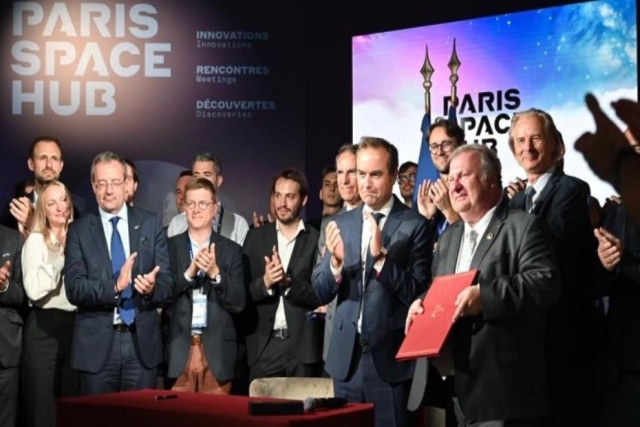Rosoboronexport eyeing on Arab Arms Market
“We expect significant shifts towards Russian weapons in regional arms markets in the near future,” Rosoboronexport Deputy Director General and head of the delegation Alexander Mikheev said. “Interest in Russian combat aircraft, air defence systems, and training aids, as well as other weapons, materiel, and special equipment grows, and we hope to secure new and to a certain extent breakthrough contracts”. The Rosoboronexport exhibition stand is expected to be visited by officials from Libya, Algeria, Egypt, the UAE, and many other countries. Upcoming meetings will focus on a wide scope of issues, ranging from procurements of cutting-edge combat systems to upgrades of arms and materiel delivered earlier. Russian weapon systems have been in service throughout the region for a long time and are highly appreciated. For instance, combat tactics of the Libyan Air Force are based on the employment of Russian- and Soviet-made hardware, while many Libyan pilots and technicians were trained in Soviet and Russian colleges. At the present time it is an excellent basis for developing close defence relations, inherent in true partners, even further. The Rosoboronexport Corporation is a traditional participant in the Libyan air show. The Tripoli-based LAVEX 2009 Exhibition will display a wide range of Russian aircraft, weapons, air defence systems, and other hi-tech products, which are of great interest to Middle East and North African countries. Special interest is generated by the Su-35 multi-role super-manoeuvrable fighter, boasting fifth-generation technologies that ensure its superiority over its rivals. The Su-35 features state-of-the-art avionics and a phased-array radar, capable of detecting targets at a greater range, tracking up to 30 targets, and simultaneously engaging eight targets. The aircraft’s super-manoeuvrability is provided by the new powerful thrust vector control (TVC) engine. At the same time in order to establish air superiority and attack any air-, ground-, and sea-based targets in any conditions by day and night, the aircraft is capable of carrying an awesome combat load of up to eight tons of guided and unguided air weapons, attached to 12 external stations. The Yak-130 combat trainer, which will soon enter service with the Russian Air Force, is also the focus of attention of arms procurement experts. The aircraft will be employed to train pilots for Su- and MiG-family fighters, including cutting-edge Su-35s and MiG-35s. Given outstanding flight characteristics, the reliable electrical fly-by-wire system, and the advanced glazed cockpit, the Yak-130 ensures efficient and safe training in piloting modern and advanced aircraft, including foreign ones. The combat trainer is capable of operating from unpaved airfields. It has a service life of 10,000 flying hours, while its airframe is designed to remain operational for at least 30 years. In addition to that the Yak-130 can carry out air strikes in the course of low-intensity conflicts. The Kamov Ka-52A Alligator reconnaissance/attack helicopter also generates considerable interest. In addition to impressive combat capabilities of an attack helicopter, the Ka-52A rotary-wing aircraft can fly reconnaissance and target designation missions, including laser illumination of targets, in the interests of interacting attack aircraft and ground-based weapon systems. The Alligator is fitted with the most advanced target detection and designation systems and is capable of carrying out automated low-level flights. In addition to that the Ka-52A can be employed to train and maintain flight skills of helicopter jockeys instead of a special training helicopter of the same type. Russia is a traditional leader in developing and manufacturing air defence systems, which have time and again proved their high efficiency in providing area and point air defence. The cutting-edge S-400 Triumf long-range surface-to-air missile (SAM) system, designed to counter all existing and future airborne threats, is one of the most efficient systems. Triumf SAM systems are capable of killing aerodynamic targets at a range of up to 250 km and ballistic targets at a range of up to 60 km within an altitude envelope of up to 27 km. This system can be integrated into any air defence system, just like the Pantsir-S1 self-propelled air defence system, capable of engaging targets with a minimal cross-section. Other promising lines of defence cooperation will also be discussed at LAVEX 2009. Rosoboronexport will familiarise its partners with precision-guided air-to-air and air-to-surface aircraft missiles, guided air bombs, as well as a variety of radars, sights, simulators for air defence combat crews, avionics, and navigation, flight control, communications, and life support systems. Much attention will be focused on building airfields, establishing service centres and an integrated after-sale services system, as well as licensed-production and assembly facilities. “Our participation in the Libyan exhibition will strengthen Russia’s relations with countries of the region both in the sphere of aircraft industry and other areas of defence cooperation. We stand every chance of succeeding given out vast experience in successful long-term cooperation,” Alexander Mikheev emphasised.









